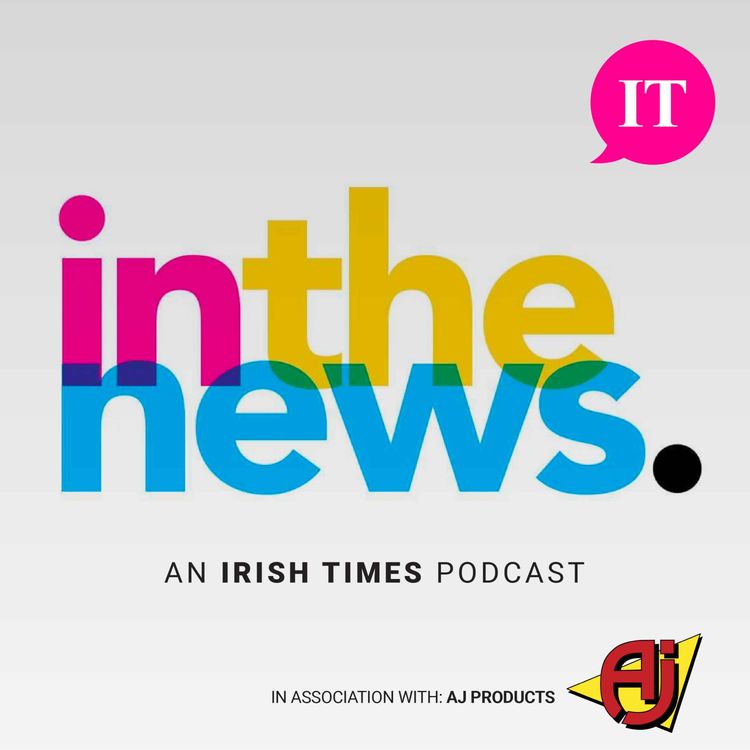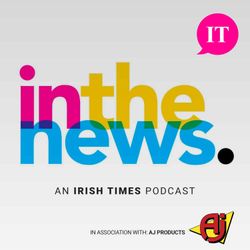Share

In The News
Will "Partygate" do real damage to Boris Johnson?
•
Denis Staunton on the latest scandal hitting UK prime minister Boris Johnson's government, after a week of denials that an illegal party took place in Downing Street last Christmas was brought to an embarrassing end by a leaked tape.
Will the scandal weaken Johnson, or undermine the new Covid-19 restrictions he announced this week?
More episodes
View all episodes

Signal scandal: What is Trump doing about his leaky administration?
22:07|On March 15th the US military carried out air strikes against the Iran backed Houthis in Yemen. It was an operation that should have been top secret, its planning known only to key Trump administration officials. But it wasn’t.Through an astonishing breach in national security, the editor of the Atlantic magazine Jeffrey Goldberg was invited into a group chat on Signal where US vice-president JD Vance, secretary of defence Pete Hegseth, and national security adviser Mike Waltz, among others were sharing highly-classified information in advance of the military strike.President Donald Trump responded to this astonishing leak, not by initiating a round of firings, but with a robust deny and deflect strategy.Scott Lucas, Professor of International Politics at the UCD Clinton Institute explains how this Signal leak happened and how the story unfolded this week.Presented by Bernice Harrison. Produced by John Casey.
What we've learned from the Garron Noone controversy
22:09|Garron Noone is one of the country's most popular social media stars, with a combined 3.5 million followers on Tiktok and Instagram. Usually he's gently poking fun at badly made cups of tea or ranking his favourite ice creams, but last week he veered off brand and ended up at the centre of an international culture war. After making comments about Ireland's immigration crisis, he drew support from the likes of right-wing commentator Katie Hopkins and misogynist influencer Tristan Tate. He's since explained his points were not well communicated and he's dismayed by the attention from the far right. But Irish Times media columnist Hugh Linehan says Noone's comments have thrown fresh light on the language and toxic discourse that surrounds discussions of immigration. This episode contains strong language.Presented by Bernice Harrison. Produced by Aideen Finnegan.How a Dublin school became embroiled in the GAA Catfish drama
17:17|Irish Times education editor Carl O’Brien discusses how a Dublin school investigated claims that the alleged GAA catfish is among its staff.Presented by Sorcha Pollak. Produced by Suzanne Brennan.Could Israel annex the West Bank?
19:43|On March 2nd, two men – one Israeli and one Palestinian – stood on the stage of the Academy Awards in LA and accepted an Oscar for their documentary ‘No Other Land’. Basel Adra and Yuval Abraham spent four years filming Israel’s forced displacement of Palestinians in the West Bank region. Their documentary was recorded before the war in Gaza, but highlights a reality that Palestinian communities have faced for decades. Life in the West Bank has become significantly more dangerous since Israel launched its Iron Wall operation just days after a the January ceasefire took hold in Gaza. What is the aim and justification of Israel’s Iron Wall operation? And with settler violence on the rise, is Israel working towards a formal annexation of the region?Hanno Hauenstein, a Berlin-based journalist, discusses his years reporting reporting rom the West Bank for the Israeli-Palestinian +972 Magazine.Presented by Sorcha Pollak. Produced by Declan Conlon.Sex education: How culture wars on gender identity have entered the classroom
26:12|The biggest shake-up to the primary school syllabus in more than two decades is on the way. It will overhaul the way most subjects are taught, even add new ones, but changes to one subject is proving the most controversial: sex education.It will replace the Stay Safe programme first introduced in the 1980s and as soon as the Department of Education announced it was working on a new approach and opened up a period of public consultation, one subject emerged as the most contentious – gender identities.Gender identity issues are not on the new primary school curriculum – something that has angered those on one side of this polarising culture war, while reassuring those on the other.Irish Times education editor Carl O’Brien explains why the curriculum is changing and how it became caught up in this most contentious debate.Presented by Bernice Harrison. Produced by Suzanne Brennan.Watching Adolescence? Here's how to talk to boys about masculinity influencers
24:08|The new Netflix show "Adolescence" has touched a nerve. In its first four days alone, it pulled in 24 million views. The fictionalised account of a 13 year old boy who murders his female classmate shines a light on a growing problem; the dangerous impact misogynist influencers are having on young men. If you've been preoccupied by the show and how you can take action on it, this episode is for you. Originally published in January 2025, Dr Darragh McCashin from the School of Psychology at DCU outlines the best way to speak to the young people in your life about influencers like Andrew Tate. The complete resource for parents and teachers can be accessed for free here.Presented by Aideen Finnegan. Produced by John Casey.Why we can't look away from this hypnotic Netflix hit, writes Laura Slattery in today's Irish Times.How Conor McGregor went from "f**k politics" to presidential wannabe
24:52|Only a few Irish eyes were smiling when Conor McGregor appeared alongside Donald Trump in the Oval Office on St Patrick's Day. The former UFC star, who is appealing a civil jury's finding that he was responsible for raping Nikita Hand, has long been a darling of the American far right. McGregor used the opportunity to spread disinformation about Ireland on the world stage, falsely alleging that Dublin is unsafe because of the high numbers of asylum seekers. But how did the ex-MMA star go from tweeting "f**k politics" in 2015 and being pro-lockdown in 2020 to teasing his ambitions to run for president this year? Crime and security correspondent Conor Gallagher outlines the vague and shifting politics of Conor McGregor and how he's been quietly working moving into politics behind the scenes.Presented by Bernice Harrison. Produced by Aideen Finnegan.'The Family': the criminal gang behind Ireland’s latest drug seizure
19:25|On Tuesday gardaí seized cocaine valued at more than €10 million when they stopped a truck on the M9 in Co Kilkenny.Intelligence led to the truck being stopped and finding no drugs in their initial search of the vehicle, they took it to be scanned, soon finding a hidden compartment packed with 152kg of drugs.As well as seizing the truck, they searched two business premises and a residential address in Co Waterford.A man in his 60s was arrested and taken in for questioning. He has been a target of the Garda National Drugs and Organised Crime Bureau (DOCB) for some time.Gardaí believe the suspect has links to the Dublin-based gang that is sometimes referred to in media reports as “The Family”. It has surpassed the Kinahan cartel’s Irish operation as the biggest drugs network in the Republic.Drugs with a street value of over €10m is regarded as a major seizure, but what impact will it have on the drugs trade in Ireland? Is The Family using the Kinehan playbook in its importation and distribution operation? And will losing such a valuable consignment damage the crime group?Presented by Bernice Harrison. Produced by Suzanne Brennan.Why Big Pharma is annoyed with Ireland
18:43|Over the past two years, the pharmaceutical industry has quietly waged a massive lobbying campaign to try to block proposed EU regulations for the sector.Big Pharma companies have invested particular time and energy into lobbying the Irish Government, urging the State to push back against reforms to speed up the roll-out of new medicines across the EU, particularly to smaller and poorer countries.Correspondence now shows pharmaceutical companies are “disappointed and concerned” by the lack of support the Government has shown the sector in its push back against proposed European Union reforms.Irish Times acting Europe correspondent Jack Power joins In The News to discuss his investigation into pharma firms’ attempts to prevent further regulation of the sector and the implications of these changes for pharmaceutical companies' presence on Irish soil.Presented by Sorcha Pollak. Produced by Suzanne Brennan and Declan Conlon.